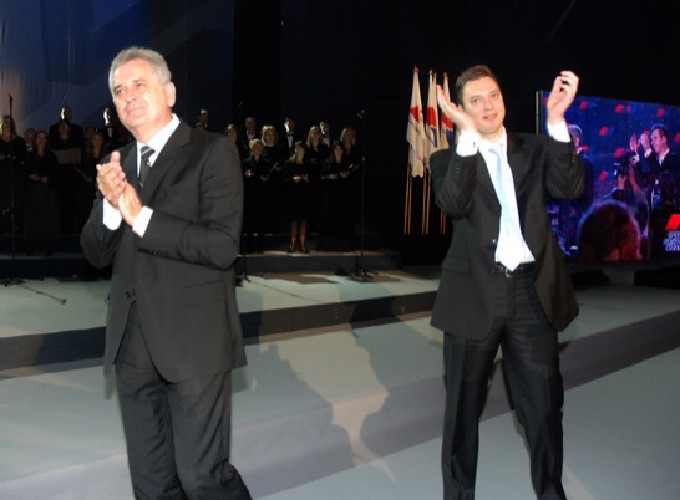Blog post published by presidential-power.com
President Tomislav Nikolic called snap elections on 29 January, less than two years after the last general election was held in July 2012. Aleksandar Vucic, the deputy prime minister and President Nikolic’s successor as leader of the Serbian Progressive Party (SNS), is tipped to emerge as Serbia’s new prime minister after the election scheduled for 16 March. If this happens, then the prime minister office may be strengthened at the expense of the presidency, as it will be for the first time since Boris Tadic took office as head of state in 2004 that the same person holds the prime minister position and the leadership of the main party in government.
Boris Tadic took over the leadership of the Democratic Party (DS) in 2004 and won the presidential election held later that year. Under Tadic’s leadership, the DP returned to power following the 2007 and 2008 general elections. The appointment of an independent prime minister in 2008, as the only solution acceptable by all parties in the pro-European coalition led by DP, enabled President Tadic to keep the main party in government under control.
In April 2012, President Tadic resigned ten months before the end of his term so that concurrent presidential and parliamentary elections could be held the following month. As the government was losing ground in pre-election polls due to the economic crisis and rising unemployment, President Tadic was hoping that the Democratic Party would be able to capitalize on his coattails. His main challenger in the 2012 presidential race was Tomislav Nikolic, the leader of the Serbian Progressive Party (SNS) that broke away from the extreme nationalist Serbian Radical Party in 2008. Tadic had already defeated Nikolic twice in the 2004 and 2008 races and pre-election polls indicated that he would be able to win the 2012 contest as well.
Although Tadic won the first round of the presidential election on May 6th, he was eventually defeated by Nikolic in the run-off. SNS and its coalition parties also emerged first from the general election held on May 6th, winning 73 out of the 250 seats in the parliament. DP and its allies emerged second with 67 seats. The kingmaker of the election was the Socialist Party (SPS), with 44 seats. While it immediately became clear that Ivica Dacic, the Socialist leader, would secure the prime minister position, it was only after the presidential run-off that SPS decided to drop their alliance with the DP in favour of a coalition with Nikolic’s SNS.
Given the unbalanced composition of forces in the DS-SNS government the imminence of a snap election was never in doubt. Aleksandar Vucic, the SNS deputy prime minister, emerged as the most powerful and popular member in the Serbian government. He succeeded Nikolic as SNS leader and was able to capitalize rapidly on a very active anti-corruption campaign. The government’s popularity also increased as a result of the successful conclusion of the agreement between Serbia and Kosovo, the organisation of local elections in Northern Kosovo in November 2013, and the official start of EU accession talks in January 2014.
The decision to bring forward the general election was taken by the Serbian Progressive Party in a special party conference, where Aleksandar Vucic was also re-elected unanimously as party leader. Subsequently, the government asked the president to dissolve the assembly and early elections were scheduled for March 16th.
Opinion polls indicate that 43% of voters support the Progressives, 13% the Socialists, and only 7% the Democratic Party. President Nikolic expressed his support for early elections publicly and endorsed Vucic as future prime minister. Thus, there seems to be little doubt about the president’s party success in the March general election or about its ability to secure the prime minister position this time. However, as opposed to previous occasions when the president supported his own party and candidate for the prime minister position, this time the head of government will be in a better position to control cabinet affairs than the president, as he has full control over the main party in government. Nikolic’s situation is therefore different than that of Boris Tadic in 2008 and it remains to be seen to which extent the different party roles played by the president and the prime minister this time will affect their intra-executive relation.


